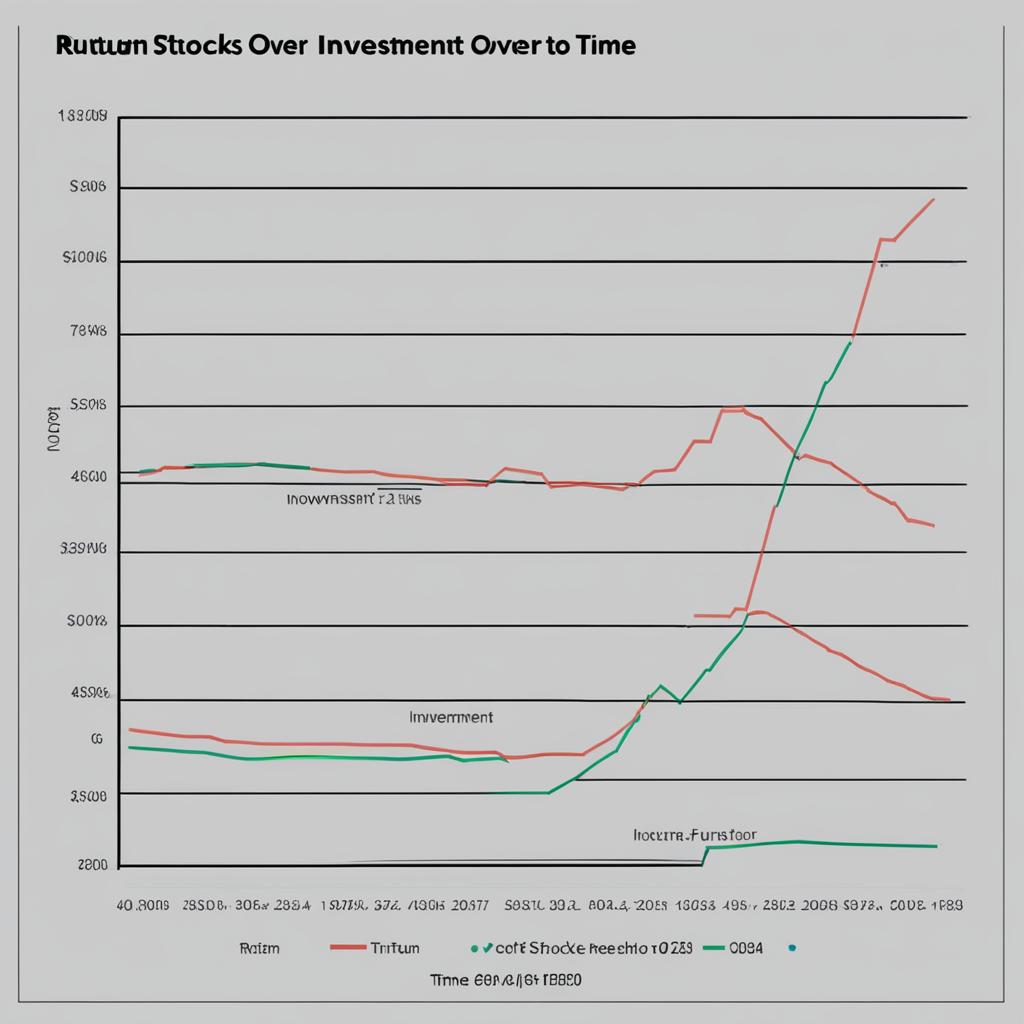Are you considering investing in the stock market but unsure whether to choose index funds or individual stocks? It’s essential to understand the key differences to make informed investment decisions. Index funds and stocks are both popular options, each with their own pros and cons. Let’s take a closer look at how they compare and which may be the right choice for you.
Index funds are diversified portfolios that aim to track the performance of a specific market index. In contrast, stocks represent ownership in a particular company. While index funds offer broad market exposure, stocks allow for direct ownership and the potential for higher returns.
In this article, I will explore the key distinctions between index funds and stocks. We’ll delve into the differences in performance, risk, and investment strategies. By the end, you’ll have a clearer understanding of which option aligns best with your investment goals and risk tolerance.
Key Takeaways:
- Index funds track the performance of a specific market index, while stocks represent ownership in individual companies.
- Index funds offer diversification and lower costs, while stocks provide the potential for higher returns and direct ownership.
- Consider your risk tolerance, investment goals, and personal preferences when choosing between index funds and stocks.
- Consulting with a financial advisor can help you make well-informed investment decisions and manage your portfolio effectively.
Understanding Index Funds
Index funds are an essential tool for investors seeking diversified portfolios composed of a variety of assets. Managed by reputable investment firms, index funds are designed to match the performance of specific market indexes, such as the S&P 500 or the Nasdaq-100. These funds primarily consist of stocks and corporate bonds, offering investors the opportunity to become part-owners of a well-rounded portfolio.
When buying shares of an index fund, investors gain proportional ownership of the entire portfolio based on the number of shares they own. This approach allows for easy diversification without the need to select individual stocks or bonds. Rather than relying on the performance of a single company or security, index funds provide exposure to a wide range of assets, reducing the risk associated with investing in individual stocks.
Index funds are typically offered as mutual funds or exchange-traded funds (ETFs). Mutual funds are professionally managed pooled investments, while ETFs are traded on stock exchanges, making them more flexible and convenient for investors. Both options have their advantages and drawbacks, so it’s essential to assess personal investment goals and preferences when choosing between mutual funds and ETFs.
Advantages of Index Funds
- Diversification: Index funds offer instant diversification by including a broad range of stocks and corporate bonds in their portfolios. This diversification helps mitigate the risk associated with investing in individual stocks.
- Liquidity: As mutual funds or ETFs, index funds are bought and sold on the open market. This liquidity allows investors to easily enter or exit positions, providing flexibility and convenience.
- Lower Costs: Index funds tend to have lower expense ratios compared to actively managed funds. These lower costs can have a significant impact on long-term investment returns.
- Passive Investment Strategy: Index funds follow a passive investment strategy, meaning they aim to mimic the performance of a specific market index rather than actively selecting and managing individual stocks. This passive approach is less time-consuming and requires less expertise compared to actively managing a stock portfolio.
By understanding the fundamentals and advantages of index funds, investors can make informed decisions about their portfolios. Whether you are a seasoned investor or just starting, index funds provide a compelling investment option that combines diversification, convenience, and potentially lower costs.
How Index Funds Work
Index funds are a specialized form of fund-based assets that aim to track the performance of a specific sector or market metric. As an investor, understanding how index funds operate is crucial for making informed decisions.
Index funds are managed by investment firms that carefully select assets for the portfolio. These assets are chosen to reflect the value and composition of the targeted market segment. The portfolio composition can include various investments such as stocks, bonds, and other relevant assets. The objective is to closely mimic the performance of a specific market index, providing investors with exposure to the broader market.
Index funds often track major market indexes such as the S&P 500, which represents the performance of 500 large-cap U.S. stocks. Additionally, there are industry-specific indexes that focus on particular sectors such as retail, technology, or energy. These industry indexes allow investors to allocate their funds to a specific sector based on their investment strategy or market outlook.
By investing in index funds, individuals can gain access to a diversified portfolio that represents the broader market. This diversification helps manage risk by reducing exposure to the performance of individual companies or specific market segments. It also allows investors to benefit from the overall market performance, capturing the potential growth of various industries and sectors.

Understanding Stocks
When it comes to investing, stocks offer a unique opportunity to become a partial owner of individual companies. When you buy shares of a stock, you acquire an ownership stake in that particular company, giving you a sense of participation and potential influence over its direction and success.
As a shareholder, one of the main benefits you may enjoy is the opportunity to share in the company’s profits. Companies often distribute a portion of their profits to shareholders in the form of dividends. These dividend payments can provide a steady income stream and a return on your investment.
Furthermore, stocks also offer the potential for capital gains. This means that if the stock price increases after you purchase it, you have the opportunity to sell your shares at a higher price, thereby making a profit.
It’s important to note that investing in individual companies carries a level of risk. While some stocks can generate significant returns, others may experience price volatility that can lead to losses. Therefore, it’s essential to carefully research and analyze individual companies, considering factors such as their financial health, industry trends, and market conditions.
“Investing in stocks allows you to align your portfolio with companies you believe in and potentially benefit from their success.”
As an individual investor, you have the freedom to choose specific companies to invest in, tailoring your portfolio to your preferences and interests. This active investing approach can be appealing to those who enjoy researching and analyzing various companies to seek out potential opportunities.
When considering stocks, it’s crucial to keep an eye on stock prices, as they can fluctuate based on market conditions and company-specific news. Monitoring stock prices and staying informed about the performance of individual companies forms a key part of successful stock investing.

Risk Comparison: Index Funds vs Stocks
When it comes to investing, understanding the level of risk involved is crucial. In this section, I will compare the risk factors associated with index funds and individual stocks, allowing you to make informed investment decisions.
Risk and Volatility
Individual stocks tend to be more volatile compared to index funds. Stocks can experience significant fluctuation in value, leading to potential gains or losses. The price of a single stock can be influenced by various factors, including company-specific news, earnings reports, and market sentiment. This volatility can be thrilling for some investors seeking higher returns, but it also exposes them to a higher level of risk.
On the other hand, index funds provide a more stable investment option. They are designed to replicate the performance of a particular market index, such as the S&P 500. By investing in a diversified portfolio of assets, index funds help mitigate the impact of individual stock performance. This reduces the overall risk compared to investing in individual stocks.
Diversification Benefits
Diversification is a key risk management strategy. It involves spreading your investments across different assets to reduce exposure to any single investment. Index funds inherently offer diversification by investing in a broad range of stocks and other assets that make up the chosen market index.
By investing in an index fund, you gain exposure to multiple companies and sectors, reducing the impact of any individual stock’s performance. This diversification helps to cushion against the risk of underperformance or volatility of a single stock.
Market Performance
Market performance can have a significant impact on both index funds and individual stocks. Individual stocks are directly affected by the performance of the company they represent. If the company performs well and its stock price increases, investors can enjoy capital gains. Conversely, if the company struggles, the stock price may decline.
Index funds, on the other hand, aim to track the performance of a specific market index. While they can still experience fluctuations due to overall market conditions, the impact of individual stock performance is diluted due to the diversification within the fund. This can result in smoother performance compared to investing solely in individual stocks.
Risk Comparison

| Volatility | Diversification | Market Performance | |
|---|---|---|---|
| Individual Stocks | High | Dependent on individual stock selection | Directly affected by company performance |
| Index Funds | Lower | Provides diversification across a broad range of assets | Tied to the performance of the chosen market index |
This table summarizes the key differences in risk between index funds and individual stocks. It highlights the higher volatility and dependence on individual stock selection in the case of individual stocks, while index funds offer lower volatility and broad diversification across multiple assets.
It’s important to note that risk tolerance varies among investors, and the suitability of index funds or individual stocks depends on your personal investment goals and preferences. Consider evaluating your risk tolerance and consulting with a financial advisor before making any investment decisions.
Advantages of Index Funds
When it comes to investing, index funds offer several advantages that make them an attractive option for investors looking to build a well-rounded portfolio. Let’s explore some of the key benefits:
Diversification for Lower Risk
One of the primary advantages of index funds is their ability to provide diversification. By investing in a broad range of assets, such as stocks, bonds, and other securities, index funds spread the risk across multiple investments. This diversification helps to lower the overall risk in your portfolio, as the losses from individual holdings may be offset by the gains in others.
Passive Investment Strategy
Index funds follow a passive investment strategy, which means that the fund simply aims to match the performance of a specific market index, such as the S&P 500. This approach eliminates the need for active stock trading and constant portfolio adjustments, making it a favorable choice for investors who prefer a more hands-off approach. With index funds, you can invest in the market without the stress and time commitment associated with active trading.
Cost-Effectiveness
Compared to actively managed funds, index funds generally have lower expenses and fees. This is because index funds are designed to replicate the performance of a market index rather than relying on portfolio managers to actively select and trade individual securities. As a result, index funds tend to have lower turnover and fewer administrative costs, making them a cost-effective investment option.
Market Performance
Index funds provide investors with exposure to the overall market performance. By investing in a diverse range of assets, index funds capture the movements of the broader market. This gives you the opportunity to benefit from the long-term growth of the market as a whole, rather than relying solely on the performance of individual stocks.
Overall, index funds offer a lower-risk, cost-effective, and passive investment strategy that can help you achieve your long-term financial goals. Their diversification and ability to track the market make them an appealing choice for both beginner and experienced investors.
Advantages of Stocks
When it comes to investing, stocks offer a range of advantages that can be enticing to investors looking for potential high returns and unique benefits. Let’s explore some of the key advantages of investing in individual stocks.
Potential for High Returns
One of the main attractions of investing in stocks is the potential for high returns. By carefully selecting stocks and investing in successful companies, early investors can often benefit from substantial gains over time. The stock market has historically provided opportunities for significant growth, making stocks an appealing option for those seeking to increase their wealth.
Individual Company Performance
Investing in individual stocks allows you to directly participate in the success and performance of specific companies. This means that your investments are influenced by the specific strategies, innovations, and decisions made by the companies you choose to invest in. By researching and analyzing individual companies, you can make informed investment decisions based on their financial performance, market position, and growth potential.
Voting Rights
Another advantage of owning individual stocks is that it often comes with voting rights. As a shareholder, you have the right to vote on important company matters, such as electing the company’s board of directors or approving significant corporate actions. This gives you a voice and the opportunity to actively participate in the decision-making process of the companies you invest in.
Active Investing and Stock Selection
For investors who enjoy active investing and the thrill of stock selection, investing in individual stocks allows for greater flexibility and control. Active investors can carefully analyze companies, study market trends, and make decisions based on their own research and analysis. This level of involvement can be intellectually stimulating and may suit individuals who have a keen interest in the stock market and enjoy active decision-making.

As with any investment, it’s important to carefully assess your risk tolerance and make well-informed investment decisions. While stocks offer the potential for high returns, there is also the possibility of losses. Diversification and thorough research are key to managing risk and maximizing the benefits of investing in stocks.
Factors to Consider when Choosing between Index Funds and Stocks
When it comes to deciding between index funds and stocks, several factors need to be considered to align your investment strategy with your financial goals and risk tolerance. To make an informed decision, take into account the following:
Risk Tolerance
Your risk tolerance plays a crucial role in determining whether index funds or stocks are a better fit for your investment portfolio. If you have a low tolerance for market volatility and prefer a more stable return, index funds may suit you better. On the other hand, if you are comfortable with the ups and downs of the market and seek potentially higher returns, individual stocks may be more appealing.
Investment Goals
Clearly define your investment goals and consider how index funds and stocks align with them. If your goal is long-term wealth accumulation and preservation, index funds may be suitable due to their diversification and potential for consistent growth. However, if you have a specific company or industry in mind and aim to capitalize on its potential success, investing in individual stocks may align more closely with your objectives.
Time Commitment
Assess the amount of time you are willing to commit to managing your investments. Index funds require minimal effort as they follow a passive investment strategy, tracking a specific market index. Conversely, investing in stocks requires active management, including monitoring company performance, market trends, and making regular buy and sell decisions. Consider your available time and willingness to engage in ongoing stock research and analysis.
Personal Preferences
Your personal preferences can also influence your choice between index funds and stocks. Some investors prefer the simplicity and ease of index fund investing, while others enjoy the excitement and challenge of picking individual stocks. Consider your comfort level with investing styles and how they align with your personal preferences and financial objectives.
Market Knowledge
Assess your level of market knowledge and understanding. If you have a solid understanding of financial markets, company fundamentals, and economic trends, investing in individual stocks may be an opportunity to capitalize on your knowledge. However, if you are new to investing or have limited market knowledge, index funds provide a diversified and lower-risk investment option that does not rely on individual stock selection.
“The key to successful investing lies in aligning your investment strategy with your risk tolerance, financial goals, and personal preferences.”
Remember, investing is a personal decision, and there is no one-size-fits-all answer. Consider consulting with a financial advisor who can provide guidance tailored to your specific financial situation and needs. They can help assess your risk tolerance, evaluate your investment goals, and guide you towards the most appropriate investment approach.
| Factors to Consider | Index Funds | Stocks |
|---|---|---|
| Risk Tolerance | Lower risk due to diversification | Higher risk due to individual stock performance |
| Investment Goals | Long-term wealth accumulation | Capitalizing on specific company/industry success |
| Time Commitment | Minimal effort with passive investing | Active management and ongoing research |
| Personal Preferences | Simplicity and ease of diversified investing | Excitement and challenge of stock picking |
| Market Knowledge | Limited market knowledge required | In-depth understanding of companies and markets |
By carefully considering your risk tolerance, investment goals, time commitment, personal preferences, and market knowledge, you can make an informed choice between index funds and stocks that aligns with your financial objectives and sets you on a path to successful investing.
Performance Comparison: Index Funds vs Stocks
When it comes to investing, understanding the historical performance of index funds and individual stocks is essential. The performance of these two investment options can vary based on market trends and the individual performance of companies in the stock market.
While stocks may offer the potential for higher returns, index funds have shown solid long-term performance. This is primarily due to their broad market exposure and diversification benefits.
Index funds are designed to track specific market indexes, such as the S&P 500, and their performance reflects the overall performance of the market. By investing in a diversified portfolio of assets, index funds can help mitigate the risks associated with individual stock performance.
On the other hand, investing in individual stocks gives you the opportunity to benefit from the success of specific companies. However, it also exposes you to higher risks and the potential for greater losses.
“While index funds provide a safer investment option with their diversified portfolio, investing in individual stocks can have higher potential returns but also higher risks.” – Financial Expert
When making investment decisions, it’s important to consider your own risk tolerance and investment goals. If you have a long-term investment horizon and are comfortable with potential fluctuations, investing in individual stocks may be suitable.
However, if you prefer a more conservative approach and value the benefits of diversification, index funds may be a better fit for your portfolio.
Analyzing historical performance data and staying informed about market trends can help you make more informed investment decisions. Consider consulting with a financial advisor to gain insights specific to your investment goals and financial situation.
Performance Comparison Table:
| Investment Option | Historical Performance | Long-Term Returns | Diversification Benefits |
|---|---|---|---|
| Index Funds | Consistently tracks market performance | Provide solid long-term returns | Offers diversification across a range of assets |
| Individual Stocks | Can vary based on company performance | Potential for higher returns | Exposure to higher risks |
Table: Performance comparison between index funds and individual stocks.
Remember, there is no one-size-fits-all investment strategy. Your decision to invest in index funds or individual stocks should be based on your risk tolerance, investment goals, and personal preferences. Always conduct thorough research and consider seeking professional advice before making any investment decisions.
Index Funds vs Stocks: Pros and Cons
When it comes to choosing between index funds and stocks, it’s important to consider the advantages and disadvantages of each option. Both index funds and stocks offer unique benefits and risks that should be weighed based on your investment preferences and risk tolerance.
Advantages of Index Funds
- Diversification: Index funds provide instant diversification by investing in a wide range of assets, reducing the impact of individual stock performance. This can help mitigate risk and create more stable returns.
- Lower costs: Index funds typically have lower expense ratios compared to actively managed funds. This means more of your investment goes towards potential returns rather than fees.
- Passive investment strategy: Index funds follow a passive investment strategy, which means they aim to match the performance of a specific market index. This strategy requires less time and effort compared to actively managing a portfolio of individual stocks.
Advantages of Stocks
- Potential for higher returns: Stocks have the potential to generate higher returns compared to index funds, especially if you invest in successful companies early on. However, higher returns also come with higher risk.
- Direct ownership: By investing in stocks, you become a direct owner in the company. This provides various benefits such as voting rights and the ability to participate in the company’s performance.
“Index funds provide instant diversification and lower costs, making them a reliable choice for long-term investors. However, stocks offer the potential for higher returns and direct ownership in companies. It’s important to consider your investment goals and risk tolerance when deciding between the two.”
Disadvantages of Index Funds
- Lower potential for high returns: Index funds aim to match the performance of a market index, which means they may not generate exceptionally high returns compared to individual stocks.
- Limited control: With index funds, you’re relying on the overall market performance rather than having direct control over the investments in the portfolio. This can limit your ability to make specific investment choices.
Disadvantages of Stocks
- Higher risk and volatility: Investing in individual stocks can be riskier and more volatile compared to index funds. The performance of stocks can be influenced by various factors such as economic conditions, company-specific news, and market trends.
- Time commitment and expertise: Successfully investing in individual stocks requires time, research, and expertise in analyzing company financials and market trends. It may not be suitable for all investors.
Ultimately, the choice between index funds and stocks depends on your individual investment preferences and risk tolerance. Index funds offer diversification, lower costs, and a passive investment strategy, making them a reliable choice for long-term investors. On the other hand, stocks provide the potential for higher returns and direct ownership in companies.
Combine these insights with your investment goals and risk tolerance to determine the best investment strategy for you. If you’re uncertain, consider consulting with a financial advisor who can provide personalized guidance based on your specific needs and objectives.
The Role of a Financial Advisor
When it comes to navigating the index funds vs stocks debate, working with a financial advisor can be immensely helpful. A financial advisor is a qualified professional who can provide you with personalized investment guidance, helping you make informed decisions about your portfolio.
One of the key advantages of consulting a financial advisor is their expertise in portfolio diversification. They can assess your risk tolerance and investment goals to recommend a well-balanced mix of index funds and stocks that align with your objectives. By diversifying your portfolio, you can spread out your investments across different asset classes and reduce the potential impact of any individual investment’s performance.
Another critical aspect of a financial advisor’s role is risk management. They will work with you to develop a risk management strategy tailored to your specific needs. By assessing your risk appetite and tolerance, they can help you determine an appropriate level of risk in your investment portfolio. They will also monitor market trends and economic conditions, making adjustments to your portfolio as necessary to mitigate potential risks.
When choosing a financial advisor, look for someone with a proven track record and relevant certifications. A certified financial planner (CFP) or a chartered financial analyst (CFA) designation indicates that the advisor has undergone rigorous training and has the necessary expertise to assist you in your investment journey.
“A financial advisor can provide you with the guidance and support you need to navigate the complexities of the investment world. They can help you evaluate your investment goals and match them with the most suitable investment approach, whether it involves index funds, stocks, or a combination of both.”
Remember, the ultimate goal of a financial advisor is to help you achieve your financial objectives, whether it’s saving for retirement, funding your children’s education, or any other financial goal you may have. They can take into account your unique circumstances and provide you with a roadmap to help you reach your financial milestones.
Takeaways
- Working with a financial advisor can provide you with personalized investment guidance and support.
- A financial advisor can help you diversify your portfolio, reducing the impact of individual stock performance.
- They can assist in managing the risk associated with your investments.
- Look for a certified financial planner (CFP) or chartered financial analyst (CFA) when choosing a financial advisor.
By partnering with a financial advisor, you gain access to their expertise and experience, giving you the confidence to make sound investment decisions and achieve your financial goals.
Conclusion
In conclusion, when it comes to making investment decisions between index funds and stocks, it’s crucial to consider individual preferences, risk tolerance, and investment goals. Index funds provide diversification and cost-effectiveness, making them a suitable option for those seeking a more passive investment strategy. They offer the benefit of tracking market indexes and spreading investments across various assets.
Stocks, on the other hand, offer the potential for higher returns and direct ownership in companies. They provide the opportunity to participate in the company’s performance and exercise voting rights as a shareholder. However, it’s important to note that stocks can be more volatile, requiring active investing and market analysis.
Considering the advantages of both index funds and stocks, it is advisable to consult with a financial advisor to determine the best investment strategy for your specific needs and objectives. A financial advisor can provide personalized guidance, help with portfolio management, and assist in mitigating risks. They will evaluate your risk tolerance and investment goals, helping you make informed decisions.
FAQ
What are index funds and how do they work?
Index funds are portfolios of assets managed by investment firms. They aim to track the performance of a specific market index by investing in a diversified range of stocks and corporate bonds. When you buy shares of an index fund, you become a part-owner of the overall portfolio.
What are stocks and how do they differ from index funds?
Stocks represent ownership stakes in individual companies. When you buy shares of a stock, you become a partial owner of that company. Unlike index funds, stocks do not provide automatic diversification and their performance is directly tied to the specific company’s success or failure.
What is the level of risk involved in investing in index funds compared to stocks?
Individual stocks tend to be more volatile, with higher potential for gains and losses. Index funds, on the other hand, provide diversification by investing in a broad range of assets, reducing the impact of individual stock performance. While index funds can still experience market fluctuations, their overall performance is often smoother compared to individual stocks.
What are the advantages of investing in index funds?
Index funds offer diversification by investing in a broad range of assets, which helps to lower risk. They also follow a passive investment strategy, requiring less time and effort compared to active stock trading. Additionally, index funds generally have lower expenses and fees compared to actively managed funds, making them a cost-effective investment option.
What are the advantages of investing in individual stocks?
Investing in individual stocks provides the potential for high returns, particularly if you invest in successful companies early on. Shareholders also have certain benefits, such as voting rights and the ability to directly participate in the company’s performance. Active investors who enjoy stock selection and market analysis may find stocks more appealing.
What factors should I consider when choosing between index funds and stocks?
When deciding between index funds and stocks, it’s important to consider factors such as your risk tolerance, investment goals, and time commitment. Additionally, your personal preferences and level of market knowledge can play a role in determining which option is a better fit for you. Consider consulting with a financial advisor to help assess your specific investment needs.
How do the performance of index funds and individual stocks compare?
The performance of index funds and individual stocks can vary based on market trends and individual company performance. While stocks may offer the potential for higher returns, index funds have historically provided solid long-term performance due to their broad market exposure and diversification benefits. It’s important to analyze historical performance data and consider your investment goals when making investment decisions.
What are the pros and cons of choosing between index funds and stocks?
Index funds offer diversification, lower costs, and a passive investment strategy. They help to spread risk across multiple assets. Stocks, on the other hand, provide the potential for higher returns and direct ownership in companies. It’s important to weigh these advantages and disadvantages based on your individual investment preferences and risk tolerance.
How can a financial advisor assist in the index funds vs stocks debate?
A financial advisor can provide personalized investment guidance, help with portfolio diversification, and assist in managing risk. They can help you evaluate your investment goals and match them with the most suitable investment approach. Consulting with a financial advisor can be beneficial in navigating the index funds vs stocks debate.
What is the best investment strategy for my specific needs and objectives?
The choice between index funds and stocks depends on individual preferences, risk tolerance, and investment goals. Consider consulting with a financial advisor to determine the best investment strategy for your specific needs and objectives.
Our Friends
- https://www.investopedia.com/terms/i/indexfund.asp
- https://smartasset.com/investing/index-funds-vs-stocks
- https://www.thebalancemoney.com/stocks-vs-index-funds-which-is-right-for-your-portfolio-358083
Money posts:
 How to Invest in Index Funds: A Beginner’s Guide (2024)
How to Invest in Index Funds: A Beginner’s Guide (2024)
 How to Invest $1 Million Dollars: Strategies and Tips for Growth and Security
How to Invest $1 Million Dollars: Strategies and Tips for Growth and Security
 How to Invest in the S&P 500 (2024)
How to Invest in the S&P 500 (2024)
 9 Best Investments for a Roth IRA (2024)
9 Best Investments for a Roth IRA (2024)
 12 Best Ways to Invest $5000 Dollars (2024)
12 Best Ways to Invest $5000 Dollars (2024)
 13 Best High-Yield Investments for 2024
13 Best High-Yield Investments for 2024
 How To Invest In Stocks for Beginners (2024)
How To Invest In Stocks for Beginners (2024)
 Investing for Beginners: Proven Strategies for New Investors
Investing for Beginners: Proven Strategies for New Investors

